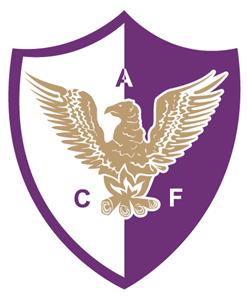
Rinus Michels: The Father of Total Football and Modern Tactics
Rinus Michels, often regarded as the father of Total Football, revolutionized how football is played and perceived. His innovative approaches not only influenced the Dutch national team but also left an indelible mark on the global football landscape. Through a blend of tactical rigor, player adaptability, and an unwavering commitment to the beautiful game, Rinus Michels created a legacy that continues to shape modern football.
The Legacy of Rinus Michels in Football
Rinus Michels’ contribution to football is monumental, transcending generations and influencing countless coaches and players. His legacy is not merely confined to stats but is embodied in a philosophy that encourages dynamic play, where each player functions with both freedom and responsibility.
Defining Total Football
Total Football is more than just a tactic; it represents a holistic approach to the game, where players are interdependent and can interchange positions fluidly. Rinus Michels emphasized the importance of every player being able to adapt and contribute both defensively and offensively.
The success of Total Football lies in its principles:
- Position Flexibility: Players are not rigidly assigned to one role. Instead, they can take on various responsibilities as situations evolve on the pitch.
- Collective Responsibility: Every player must understand tactical awareness, ensuring they can cover for teammates and support one another at all times.
- High Pressing: This strategy involves a proactive approach to winning possession quickly, putting pressure on the opposition as soon as they gain the ball.
The Influence on Future Generations
Michels’ concepts have been embraced and adapted by several generations of football thinkers. Modern coaches, from Pep Guardiola to Jurgen Klopp, have drawn inspiration from Michels’ Total Football philosophy, each crafting their interpretations to suit contemporary football demands.
These key traits have reshaped how football clubs recruit players and train teams. The emphasis has shifted to seeking versatile players who can perform in multiple roles, aligning with Michels’ original vision.
Lasting Impact on Club Football
The ripple effects of Michels’ coaching philosophy extended beyond the national team. Clubs like Ajax and Barcelona adopted his principles, establishing themselves as dominant forces in club football. The Ajax youth academy, in particular, emphasized training young talent through the Total Football lens, producing stars like Johan Cruyff—one of Michels’ most notable disciples.
Michels’ legacy is evident in the playing philosophies of successful clubs throughout Europe. His imprint can be traced in the emphasis on possession-based football, fluid movement, and the nurturing of tactical awareness in young players.
Rinus Michels: The Father of Total Football
Rinus Michels’ designation as the ‘Father of Total Football’ is a tribute to his visionary strategies. His approach revolutionized tactical thinking in football, creating a model that prioritizes fluidity and collective action over individualism.
Origins of Total Football
Total Football emerged in the late 1960s and early 1970s, firmly rooted in the Dutch football philosophy. Michels recognized that football at its core is a team game, which led him to develop a system where every player is significant.
This tactical evolution was driven by several factors:
- Cultural Influence: Dutch culture prized collective effort and teamwork, themes that permeated Michels’ coaching style.
- Talented Players: The emergence of technically gifted players in the Netherlands allowed Michels to implement complex strategies, as his teams possessed both skill and understanding.
- Strategic Necessity: Michels realized that modern football required a shift from static roles to a more dynamic, interchanging framework that maximized the potential of every player.
The Ajax Era
Michels’ tenure at Ajax from 1965 to 1971 is where Total Football fully blossomed. Under his guidance, Ajax experienced unprecedented success, winning multiple Eredivisie titles and the European Cup in 1971.
Michels’ training methods emphasized:
- Positional Play: Players practiced understanding spatial relationships on the pitch.
- Interchangeability: Drills that encouraged players to switch positions during match situations fostered their adaptability.
- Team Cohesion: Michels fostered a strong sense of unity within the squad, critical for executing complex game plans.
National Impact
Michels’ influence extended beyond club football. His coaching of the Dutch national team took the principles of Total Football to the international stage. His stress on cohesive teamwork and strategic fluidity redefined Dutch football, making it an internationally recognized force.
The Dutch national team’s participation in the 1974 World Cup exemplified this transformation, as Michels embedded the Total Football philosophy deeply within the team’s identity.



